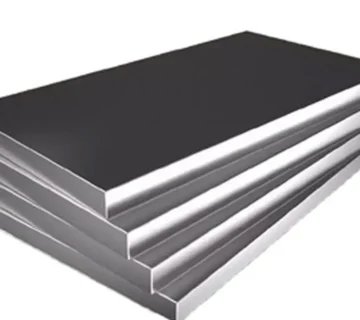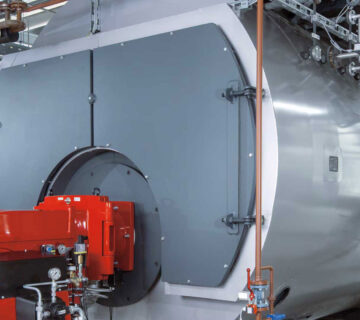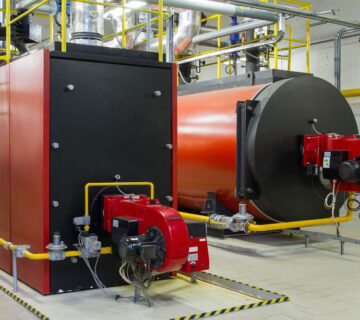A boiler is an essential piece of equipment in various industries, providing steam and heat for different processes. However, like any mechanical system, boilers can encounter problems that may disrupt their performance. This comprehensive guide covers common boiler issues, their potential causes, and troubleshooting steps to help you identify and resolve these problems efficiently.

1. Common Boiler Issues and Their Causes
1.1. Boiler Fails to Start
- Possible Causes:
- Power supply issues or power outages
- Faulty thermostat or incorrect settings
- Malfunctioning pressure switch
- Problems with the ignition system, such as a blocked gas valve or pilot light failure
1.2. Low or Inadequate Steam Production
- Possible Causes:
- Low water level in the boiler
- Blocked pipes or valves restricting water or steam flow
- Malfunctioning burner or fuel supply system
- Accumulation of scale or deposits inside the boiler, reducing heat transfer
1.3. Steam Pressure Drop
- Possible Causes:
- Leaks in pipes, valves, or connections
- Improper adjustment or malfunction of the pressure control valve
- Inconsistent fuel supply or burner operation
- Control system issues that fail to maintain optimal pressure
1.4. Excessive Noise from the Boiler
- Possible Causes:
- Air trapped in the system causing banging or knocking sounds
- Scale or sediment buildup in pipes and the combustion chamber
- Problems with the circulation pump, leading to noise and vibrations
1.5. Boiler Shuts Down Unexpectedly
- Possible Causes:
- Overheating due to blocked air vents or insufficient water flow
- Malfunctioning safety controls or sensors
- Fuel supply interruptions
- Faults in the electrical system or control panel

2. Troubleshooting Steps
2.1. Checking the Power Supply
- Verify if the boiler is receiving power. Check the circuit breaker, power switch, and fuse box.
- Ensure the thermostat settings are correct and operational.
2.2. Inspecting Water Levels and Pressure
- Check the water gauge to ensure the water level is within the recommended range.
- Inspect the pressure gauge; if the pressure is too low, adjust using the pressure control valve.
2.3. Clearing Air from the System
- Bleed the air from the radiators and pipes to eliminate noise and improve circulation.
- Ensure the expansion tank is functioning properly to handle the pressure changes.
2.4. Examining the Burner and Ignition System
- Check the gas supply and valve operation.
- Clean the burner and ignition system to remove any blockages or debris that may hinder proper functioning.
2.5. Inspecting for Leaks and Blockages
- Carefully inspect the boiler and pipes for any signs of leaks. If found, repair or replace the faulty parts.
- Remove any visible scale or deposits inside the boiler and pipes using recommended cleaning agents.
2.6. Resetting the Boiler
- If the boiler shuts down, reset it according to the manufacturer’s instructions. If it continues to fail, further inspection by a professional may be necessary.

3. Preventive Maintenance Tips
3.1. Regular Cleaning and Descaling
- Clean the boiler regularly to prevent the buildup of scale and deposits that can affect heat transfer and efficiency.
- Use descaling solutions and follow the manufacturer’s guidelines for periodic maintenance.
3.2. Inspecting Safety Controls
- Regularly check safety controls, including pressure switches, temperature sensors, and emergency shutdown systems, to ensure they function correctly.
3.3. Monitoring the Fuel System
- Inspect the fuel lines and connections for any signs of wear, leaks, or blockages.
- Schedule annual maintenance checks by a qualified technician to assess and adjust fuel combustion efficiency.
4. Frequently Asked Questions (FAQs)
Q1: What should I do if my boiler fails to start?
A: First, check the power supply and ensure the thermostat is set correctly. Inspect the ignition system and reset the boiler if needed. If the problem persists, consult a technician.
Q2: Why is my boiler making a loud noise?
A: The noise could be due to trapped air in the system, scale buildup, or a faulty water pump. Bleed the radiators and check for any sediment in the pipes.
Q3: How can I increase steam pressure in my boiler?
A: Verify that there are no leaks in the system and that the pressure valve is adjusted correctly. Ensure the fuel supply and burner operation are consistent.
Q4: How often should I maintain my boiler?
A: Regular maintenance, such as cleaning and descaling, should be performed every six months. An annual inspection by a professional is recommended.
Q5: What is the cause of frequent boiler shutdowns?
A: This could be due to overheating, electrical issues, or fuel supply interruptions. Inspect the safety controls and reset the boiler according to the instructions.
Q6: Can I fix boiler leaks myself?
A: Minor leaks, such as those from valves or fittings, can be repaired by tightening connections. For major leaks or internal problems, professional assistance is necessary.
Q7: How do I bleed air from the boiler system?
A: Turn off the boiler and locate the bleed valves on the radiators. Use a bleed key to release the air until water flows steadily, then close the valves.
Q8: Why is my boiler’s steam production inconsistent?
A: Check for blockages in the pipes and ensure the water level is adequate. The burner and fuel system may also require inspection for consistent operation.
Q9: What should I do if the boiler pressure is too low?
A: Adjust the pressure control valve and check for any leaks in the system. If the issue persists, consult a professional.
Q10: Is it safe to reset my boiler frequently?
A: While resetting may temporarily solve some issues, frequent resets indicate underlying problems that need professional attention.
This guide provides a comprehensive overview of common boiler issues and troubleshooting tips. For complex problems, always consult a certified technician to ensure safe and effective solutions.




